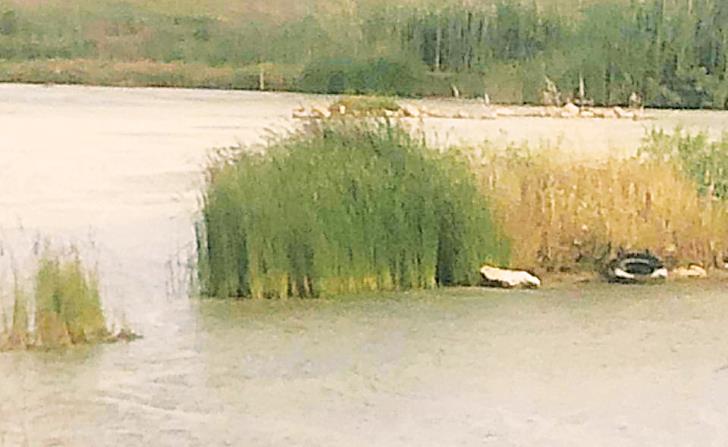The inability of the competent authorities to implement the legislation in areas of nature and wildlife protection, discourages certain people in the area of Paralimni, according to today's publication of the newspaper "Phileleftheros", which seek the drainage of the lake, which hosts important species. flora and fauna, such as the endemic subspecies of water snake (Natrix natrix cypriaca). The day before yesterday, some people opened the irrigation canal, resulting in the outflow of a large amount of water from Lake Paralimni. The newspaper "Phileleftheros", which received complaints, contacted the Minister of Agriculture, Rural Development and Environment, Costas Kadis, who confirmed that after receiving the complaint he took immediate action to the Municipality of Paralimni and promised that within the next day channel closure.
The conservation of the habitats and species of flora and fauna of the Natura 2000 area depends to a large extent on the presence of water. It is noted that most of the land that falls within the Natura 2000 area is private land. This results in a strong reaction from the owners, who oppose the implementation of any management projects in the area, without the payment of compensation.
The Natura 2000 Lake Paralimni area is the largest inland natural lake in Cyprus and one of the few natural wetlands on the island. It is noted that the defining species of the area, such as Pellokaterina (Vanellus spinosus), Kalamokannas (Himantopus himantopus) and Nanoploumidi (Charadrius alexandrinus) are breeding at this time and their survival depends on the water level. Lake Paralimni is perhaps the most important wetland in Cyprus, after the Akrotiri and Larnaca Salt Pans. It has joined the Natura 2000 Network both as a Site of Community Importance (SCI) / Special Conservation Area (SPA) for natural habitats, flora and fauna, and as a Special Protection Area (SPA) for wild birds.
The designated habitats for the SCC / EDP area are the primary vegetation with Salicornia and other annual species of muddy and sandy zones, the Mediterranean salt marshes (Juncetalia maritimi) and the southern riparian forests-lodges and ridges (Nerio-Securicia tin). The specification species for the SCI / EZD area are the priority species Natrix natrix cypriaca (Cypriot water snake) and the species Rhinolophus hipposideros (Mikrinolofos). The defining species for the SPA area are Vanellus spinosus (Pellokaterina), Himantopus himantopus (Kalamokannas) and Charadrius alexandrinus (Nanoplumidi).
In particular, in March 2009, Lake Paralimni was declared a SPA, while in January 2011 it was declared a SCC. In April 2015, the TKS area was declared an EZD and the Decree was issued pursuant to Article 13 (2) of the Law on Nature and Wildlife Protection and Management (Priority Measures for the Special Conservation Zone of Paralimni Lake - CY3000008). However, to date the necessary Decree for Management and Protection of Nature has not been issued under Article 15 of the Law on Protection and Management of Nature and Wildlife of 2003 to 2015, as well as the necessary Decree for Protection and Management of Wild Birds and Prey under Article 7 (6) of the Law on Protection and Management of Wild Birds and Prey of 2003 to 2017.
It is noted that in March 2012, the Court of the European Union ruled in favor of Cyprus for not including within the set deadline the site of community importance of Lake Paralimni - Status of protection of the species Natrix natrix cypriaca.
The Court sentenced the Republic of Cyprus, because it violated its obligations by failing to include the area of Lake Paralimni in the national list of proposed SCIs and tolerant activities that seriously endanger the ecological characteristics of Lake Paralimni and not having taken measures to protect to preserve the population of the species Natrix natrix cypriaca (water snake of Cyprus), which is the ecological interest of the lake, and failing to take the necessary measures to establish and implement a regime of strict protection of this species.
Source: philenews
